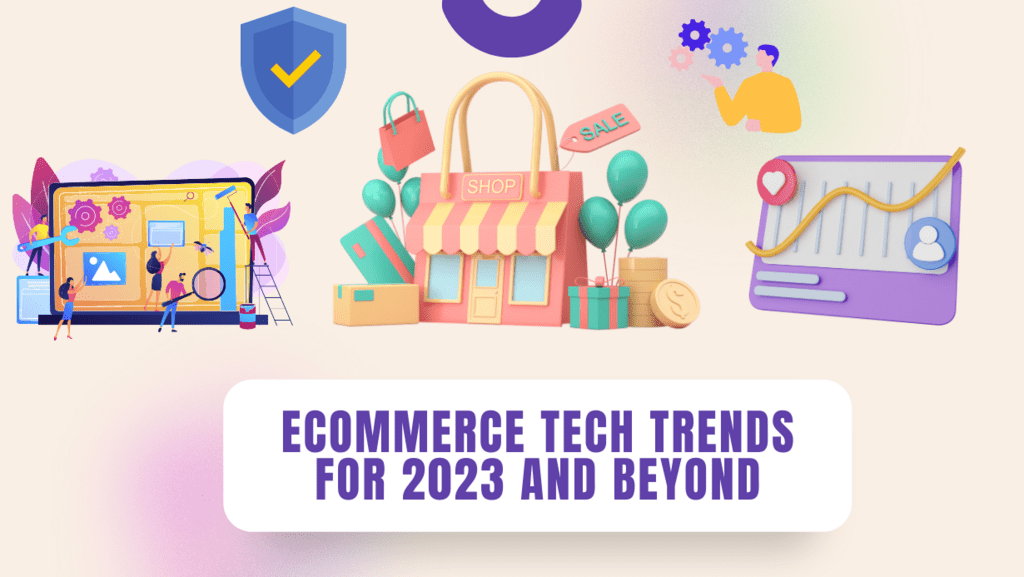
First of all Happy New Year 2023 for Webocreation Team to all of our customers, clients, blog readers and subscribers, Thank you for making our 2022 successful and progressive and looking to keep on building eCommerce websites and writing about it more. So, as 2022 is going to end soon, so we were analyzing what will 2023 brings in eCommerce sector. So, here are some several eCommerce technology trends that are expected to continue to grow and evolve in the coming years in eCommerce sector.
Live streaming for eCommerce products
With the rise of instant video content and live streaming technology in different social platforms like Tiktok, Youtube shorts, Instagram video etc businesses should be ready to broadcast live video content to their customers which can help you to get more engagement from customers and showcase products in a more interactive and authentic way. Some of the advantages of using live streaming for eCommerce products include:
- Providing customers with a real-time, interactive experience
- Building trust and credibility with customers by showing products in action
- Creating a sense of urgency and excitement around products
- Allowing customers to ask questions and get real-time responses
Greater focus on sustainability and eco-friendly products in eCommerce

There is a growing focus on sustainability and eco-friendly products in the eCommerce industry because consumers are becoming increasingly aware of the environmental impact of their shopping habits, and they are looking for ways to reduce their carbon footprint and support environmentally-friendly businesses. In response to this trend, many eCommerce businesses are offering eco-friendly products and sustainable packaging options. This can include offering organic or recycled materials, using renewable energy sources, and reducing waste and emissions. The trend on sustainability and eco-friendly products in eCommerce is likely to grow in the coming years, and it presents an opportunity for businesses to differentiate themselves and meet the evolving needs of consumers.
Privacy regulation will expand
Privacy regulations will continue to expand in the eCommerce industry in the coming years because consumers are becoming increasingly concerned about their privacy online, and growing pressure on businesses to protect personal information and ensure that it is used responsibly. In response to these concerns, many governments and organizations are implementing new privacy regulations and standards, such as the General Data Protection Regulation (GDPR) in the European Union and the California Consumer Privacy Act (CCPA) in the United States. These regulations establish strict rules around the collection, use, and sharing of personal data, and they give consumers greater control over their own information.
For eCommerce businesses, complying with these regulations can be complex and challenging. It may require significant investments in technology and personnel, and it can impact the way that businesses collect, use, and share customer data. However, failing to comply with privacy regulations can have serious consequences, including fines, legal action, and damage to a company’s reputation.
Privacy regulations will continue to expand in the eCommerce industry in the coming years, and businesses will need to be prepared to comply with these regulations in order to protect their customers’ privacy and avoid legal and financial risks.
Hyperautomation will drive workflows
Hyperautomation is a term used to describe the use of advanced technologies, such as artificial intelligence and machine learning, to automate processes and tasks. In the context of eCommerce, hyperautomation could be used to automate various aspects of the online shopping experience, such as product recommendations, order fulfillment, and customer service. This could help eCommerce businesses to improve efficiency, reduce costs, and enhance the customer experience.
Increased use of augmented reality (AR) and virtual reality (VR) in eCommerce

The use of augmented reality (AR) and virtual reality (VR) in eCommerce is a trend that is expected to grow to enhance the online shopping experience and provide customers with new and interactive ways to engage with products. Some of the ways that AR and VR are being used in eCommerce include:
- Allowing customers to virtually try on clothes or accessories before making a purchase
- Providing customers with detailed, interactive product demonstrations and tours
- Creating immersive shopping experiences that allow customers to explore products in a virtual environment
- Providing customers with virtual product customization options, such as choosing different colors or materials for a product
Platformization – single secure system
Platformization refers to the process of building a single, secure system that can be used by multiple parties to access various services and data. This trend is becoming increasingly common in the business world, as companies look for ways to streamline their operations and improve efficiency, collaboration and coordination.
However, implementing a platformed system can be complex and costly, and it requires careful planning and coordination. Additionally, it can be difficult to integrate existing systems and services into a new platform, and there may be resistance from employees who are used to working with familiar tools and processes.
See our 5-in-1 eCommerce platform features.
Cloud-native solutions
Cloud-native solutions are a type of technology that is designed to be run on cloud computing platforms, such as Amazon Web Services (AWS), Microsoft Azure, or Google Cloud Platform. These solutions can be used to support eCommerce operations by providing scalable and flexible infrastructure, as well as a range of tools and services that can be used to build and manage online stores. Cloud-native solutions can provide many benefits for eCommerce businesses, including increased scalability, flexibility, and cost savings. These solutions can help businesses to operate more efficiently and effectively and can support the growth and success of their online operations.
Host LAMP stack in AWS, Opencart hosting in AWS
More securities threats
Hackers and other cybercriminals are constantly developing new techniques and technologies to gain access to sensitive information, such as customer payment details and personal data. The challenges for eCommerce businesses is protecting customer information from being stolen or misused. This can require significant investments in technology and personnel, as well as ongoing monitoring and updates to stay ahead of emerging threats. eCommerce websites will continue to face an increased number of security threats in the coming years.
To reduce the risk of security breaches, eCommerce businesses can take a number of steps, such as:
- Implementing robust security measures, such as encryption and firewalls, to protect customer data
- Regularly updating software and systems to address known vulnerabilities
- Monitoring for suspicious activity and responding quickly to potential threats
- Providing customers with clear and concise information about how their data is being used and protected
Set up Cloudflare easily for eCommerce websites like Opencart
Cryptocurrencies in eCommerce
The use of cryptocurrencies, such as Bitcoin, Ethereum and others, is becoming increasingly common in the eCommerce industry. These digital currencies are decentralized and distributed across a network of computers, which makes them appealing to many consumers and businesses who value privacy and security.
Cryptocurrencies offer several potential advantages for eCommerce businesses, including: Reduced transaction fees, increased security, global reach, and enhanced privacy. Some challenges using cryptocurrencies in eCommerce are: the value of cryptocurrencies are volatile as of now so it is difficult for businesses to predict their revenue and profit, many consumers are still not familiar with cryptocurrencies, and it may be difficult to convince them to use these digital currencies to make purchases online and many more.
But, the use of cryptocurrencies in eCommerce is growing so we need to be ready for it.
Increased use of chatbots and other automated customer service tools in eCommerce
The use of chatbots and other automated customer service tools is expected to continue to grow in the eCommerce industry in the coming years. Some of the advantages of using chatbots and other automated customer service tools in eCommerce include:
- Providing fast and efficient service to customers
- Reducing the workload on human customer service staff
- Allowing businesses to handle a higher volume of inquiries
- Providing customers with 24/7 access to support
However, it’s important to note that chatbots and other automated customer service tools are not a replacement for human customer service staff. While these technologies can be effective for handling routine inquiries and providing basic information, they may not be able to handle more complex or nuanced customer service issues.
How to increase eCommerce sales? 13 proven tips and tricks to boost conversions.
The eCommerce is constantly evolving, and it’s important for companies to stay up-to-date with the latest trends and technologies in order to remain competitive. Let us know what other eCommerce trends that you are seeing for 2023. Please let us know if you have any questions or suggestions, please click to see eCommerce trends. You can also find us on Twitter and Facebook.






